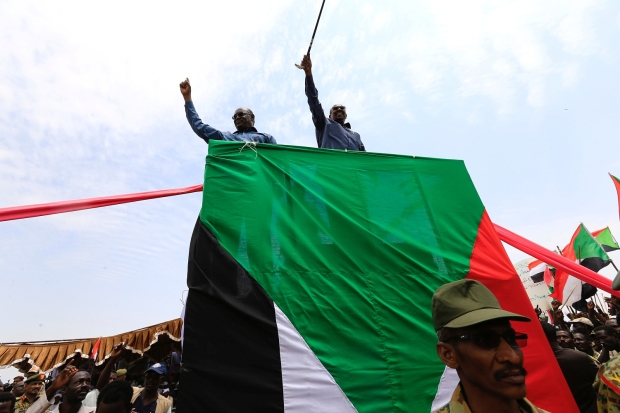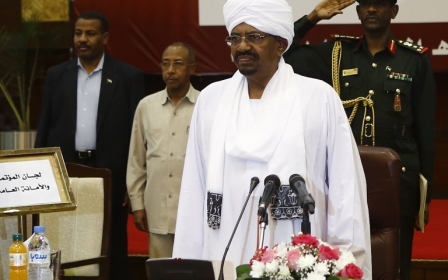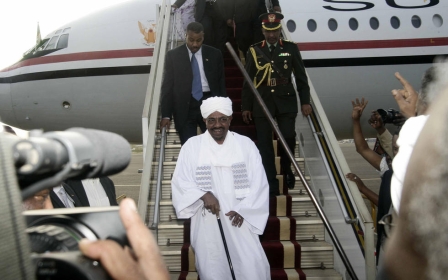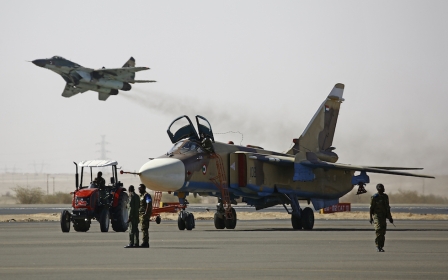Sudan critics in last-ditch effort to stop Trump lifting sanctions
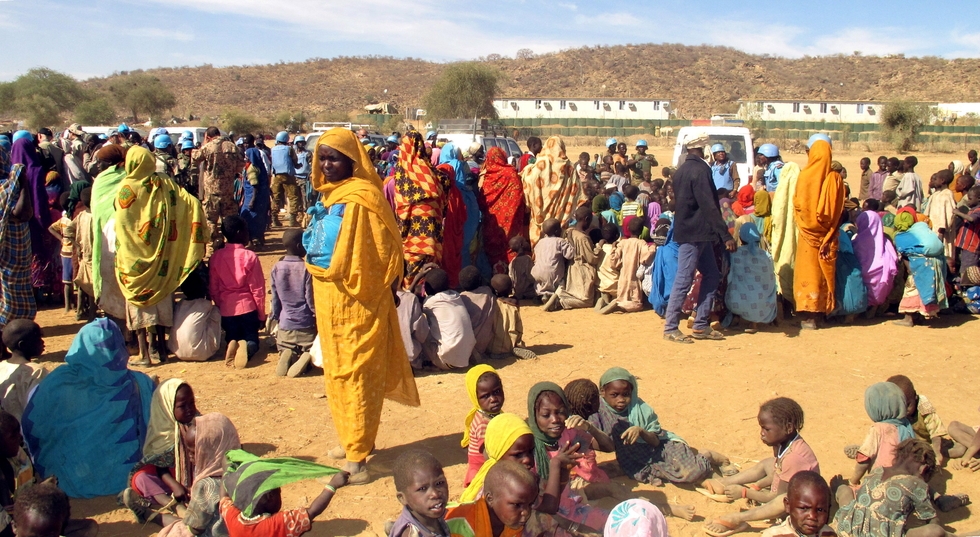
NEW YORK, United States – Campaigners launched a last-ditch effort on Thursday to deter the White House from lifting economic sanctions against Sudan, saying the move may embolden the African nation to commit more abuses against its own people.
US President Donald Trump’s administration is expected to announce a decision to rescind decades-old trade curbs against Khartoum as early as Friday, some US officials said, as Sudan has been making progress on key areas of concern.
Sudan had been one of the countries on Trump’s ban on travellers from mostly-Muslim countries, but it was no longer on that list when his team unveiled replacement travel restrictions last month. It was the only country to be removed from the new list.
Sudan's progress on human rights is superficial at best
- Jehanne Henry, HRW
The move follows a lobbying campaign by Saudi Arabia and Israel, close US allies that have sought to encourage Sudan’s recent moves away from their mutual rival, Iran, as Khartoum renovates its reputation after decades of isolation, war and abuses.
But some scholars and activists contacted by Middle East Eye warned that Sudan is not ready to return to the international fold, and that lifting sanctions may be seen as a green light for new atrocities in the rebellious areas of Darfur, South Kordofan and Blue Nile.
According to Jehanne Henry, from the New York-based advocacy group Human Rights Watch, a recent release of several political prisoners could well be a case of Sudan “trying to play nice and put on a good face in order to have sanctions lifted”.
“Lifting US sanctions sends the message that Sudan is making progress, when in fact all the Sudanese government is doing is reducing the intensity of wars and making promises for better humanitarian access,” Henry told MEE.
“Its progress on human rights is superficial at best.”
The forthcoming decision may permanently end the US embargo on Sudan and lift asset-freezes and curbs on trade and financial transactions that have hobbled the country’s economy. Trade with oil-and-gas industries in Sudan, such as pipelines and oil field services, may be allowed.
It reflects a US assessment that Sudan has made progress in meeting Washington’s demands, including cooperation on counter-terrorism, addressing internal conflicts and letting more aid into Darfur and other rebellious border areas.
North Korea
Khartoum has also assured the US it has cut ties with Pyongyang and disclosed banking details of North Korean fronts, the Financial Times reported. Washington is seeking to starve Pyongyang of hard currency and persuade it to drop its nuclear weapons programme.
Eric Reeves, a Sudan expert at Smith College, said the White House was more interested in gaining leverage against Pyongyang and expanding its spy and counter-terror networks than in improving Khartoum’s human rights scorecard.
“The administration is rewarding the regime for nice noises on counter-terrorism, intelligence-sharing and North Korea, despite it being a kleptocracy that continues grinding Sudanese people into the ground with an economy that’s in freefall,” Reeves told MEE.
He noted trade-offs for the US, including permission to equip its embassy in Khartoum with “hi-tech surveillance and spyware” to create a “well-positioned listening post in northern Africa”. US officials were not immediately available to comment.
For the US, any leverage against Pyongyang clearly overrides its interests with Sudan
- Ernst Hogendoorn, the International Crisis Group
Lifting sanctions would not quickly trickle down into the wallets of ordinary Sudanese, but it would see new cash-flows diverted into state coffers to finance “major military operations” in the southern Nuba Mountains this coming dry season, Reeves added.
Scrapping the embargo would mark a big boost for the government of President Omar al-Bashir, who once played host to al-Qaeda boss Osama bin Laden and is wanted by the International Criminal Court on charges of orchestrating genocide in Darfur.
'Carrots rather than sticks'
This week, Sudan’s State Minister for Foreign Affairs Hamed Momtaz told Reuters in Khartoum that the US had seen Sudan fulfil all “necessary conditions relating to the roadmap” and that his government expected sanctions to be lifted in return.
Not all advocacy groups are against the Trump administration’s expected move. Ernst Hogendoorn, deputy director for Africa at the International Crisis Group, said Sudan’s modest improvements should be rewarded with carrots rather than sticks.
“Measured engagement, with positive rewards for improved behaviour, is more likely to induce positive change from Khartoum,” Hogendoorn said. It should not be presented as Trump’s “stamp of approval” but rather as a “first step along a long and difficult road” to rehabilitation.
By winning concessions on North Korea, Washington now has more reason to deliver, he told MEE.
“For the US, any leverage against Pyongyang clearly overrides its interests with Sudan,” he said. “Given that Sudan has seemingly complied with US requests on this point, Khartoum would feel particularly aggrieved if Washington did not follow through and lift sanctions.”
Others note that Sudan faces profound security challenges in a difficult region where many of its neighbours are deeply unstable.
The US first imposed sanctions on Sudan in 1997, including a trade embargo and freezing state assets, for human rights abuses and terrorism concerns. It layered on more sanctions in 2006 for alleged atrocities in Sudan’s Darfur region.
Before leaving office, former US President Barack Obama temporarily eased decades-old curbs against Khartoum. In July, the Trump administration postponed its decision on whether to remove the sanctions completely, setting up a 12 October deadline.
Middle East Eye propose une couverture et une analyse indépendantes et incomparables du Moyen-Orient, de l’Afrique du Nord et d’autres régions du monde. Pour en savoir plus sur la reprise de ce contenu et les frais qui s’appliquent, veuillez remplir ce formulaire [en anglais]. Pour en savoir plus sur MEE, cliquez ici [en anglais].


